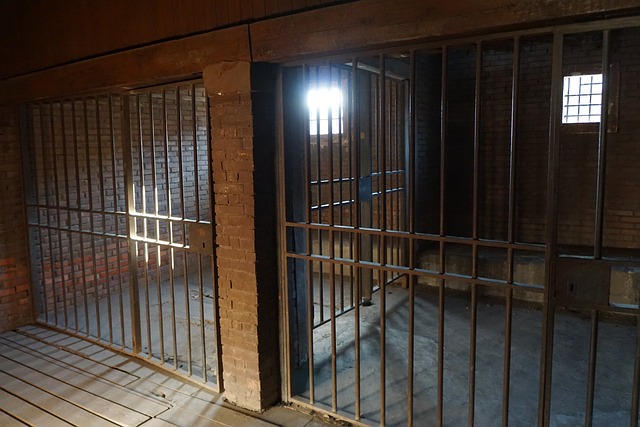Rural and urban areas face distinct challenges in DUI law enforcement and teen driver safety due to geographic variations. Rural regions struggle with low population densities, limited traffic resources, and access to specialized services, while urban centers deal with high density and diverse road conditions. Tailored interventions and flexible programs are needed for rural Teen Driver Rehabilitation (TDR) to bridge service gaps. Urban TDR benefits from robust support networks and innovative tools like virtual reality simulations to enhance teen driving skills in complex environments. Effective strategies require understanding these geographic differences to ensure fair access to educational and corrective measures for all teen drivers.
In the vast landscape of differing DUI laws, rural and urban areas present unique challenges. This article explores the key distinctions between these jurisdictions, focusing on their implications for teen driver rehabilitation programs. We delve into the complexities of equitable enforcement and highlight strategies to bolster safety measures for young drivers. Understanding these disparities is vital in developing comprehensive support systems for teenagers navigating both rural and urban roads.
- Understanding Rural and Urban DUI Laws: Key Differences
- Impact on Teen Driver Rehabilitation Programs
- Challenges and Considerations for Equitable Enforcement
- Strategies to Enhance Safety and Support for Teenage Drivers
Understanding Rural and Urban DUI Laws: Key Differences

In rural areas, DUI laws often reflect the lower population densities and distinct community dynamics. These regions typically have fewer traffic enforcement resources, which can lead to less stringent regulations compared to urban centers. As a result, teens in rural settings may face different challenges when it comes to alcohol-related driving offenses. For instance, reduced police patrols might mean fewer opportunities for law enforcement to deter or catch impaired driving.
In contrast, urban areas are often characterized by higher population densities and more extensive traffic management systems. This can translate into stricter DUI laws and more aggressive enforcement strategies. Urban environments also tend to offer a wide array of resources for teen driver rehabilitation programs, which can help mitigate the impacts of DUI offenses and promote safer driving habits in young people. These differences underscore the importance of understanding how geographic location influences DUI legislation and subsequent support services for at-risk teens.
Impact on Teen Driver Rehabilitation Programs

In rural areas, where populations are less densely packed and communities are more spread out, Teen Driver Rehabilitation (TDR) programs often face unique challenges due to the distinct DUI laws. These laws tend to be less stringent compared to urban centers, which can lead to a perception of reduced consequences for driving under the influence. As a result, teens in rural settings might face different obstacles when enrolled in TDR programs. Accessing specialized services and resources can be more difficult, as there may be fewer facilities and support networks available locally. This is particularly relevant in areas with limited public transportation, making it challenging for teens to attend therapy sessions or support groups consistently.
The impact of these differences on TDR programs is significant. Rural teens might require more tailored interventions that consider the unique socio-cultural context of their communities. Programs need to be flexible and adaptable, offering creative solutions to address the gap in services. Enhancing community involvement and collaboration between local organizations can help bridge this divide, ensuring that teens receive the necessary support for rehabilitation, regardless of their geographical location.
Challenges and Considerations for Equitable Enforcement

Enforcing DUI (Drunk Driving Under Influence) laws in rural and urban areas presents distinct challenges that can impact the equity of law application. One significant consideration is geographic disparity, where rural regions often lack dense populations, making it more challenging for law enforcement to patrol and deter drinking and driving effectively. This can result in lower enforcement visibility, potentially encouraging some individuals to engage in such behaviors. On the other hand, urban areas with higher population densities may face the opposite challenge—a crowded landscape that necessitates precise targeting of high-risk zones and behaviors without infringing on civil liberties.
Another critical aspect is the availability of resources for Teen Driver Rehabilitation programs, which play a vital role in mitigating DUI risks. Rural communities might struggle to secure dedicated funding and specialists for such programs, whereas urban centers often benefit from more extensive support networks. Bridging this gap is essential to ensure fair access to educational and corrective measures that can prevent and reduce DUI incidents across all regions.
Strategies to Enhance Safety and Support for Teenage Drivers

In rural areas, where teen drivers often face fewer traffic congestion and more open roads, safety strategies must be tailored to account for unique challenges. This may include increased focus on defensive driving education, emphasizing awareness of wildlife and agricultural hazards specific to rural landscapes. Support systems such as peer mentoring programs can foster a sense of community and accountability among young drivers. Moreover, access to specialized Teen Driver Rehabilitation centers can play a pivotal role in rural communities, offering comprehensive training to help teens develop the skills needed for safe driving in their distinct environments.
In contrast, urban settings present different safety concerns due to heavy traffic density and diverse road conditions. For urban teen drivers, intensive training on navigating complex intersections, managing congestion, and recognizing potential dangers from city life is crucial. Urban-focused rehabilitation programs can incorporate virtual reality simulations to prepare teens for real-world driving scenarios in a controlled environment. These strategies aim to enhance their decision-making abilities under pressure, making them safer drivers in the bustling urban landscape.
In conclusion, the disparities between rural and urban DUI laws highlight the need for comprehensive and equitable enforcement strategies that focus on teen driver rehabilitation. By understanding the unique challenges in both settings, we can develop tailored programs to enhance safety and support for teenage drivers. Such efforts are crucial in mitigating drunk driving incidents and fostering responsible driving behavior among youth, ultimately contributing to safer communities across the board.






